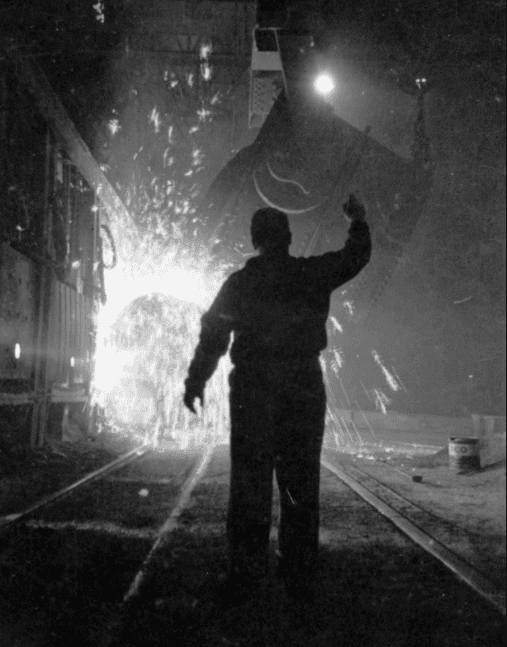WHY YOU’RE STRONGER THAN STEEL
Ever improving productivity translates to fewer workers. If you are one of those surplus workers, that does not guarantee that you don’t have a job—it just means that you don’t have that job. With revised skills, specialized training, a new twist on your talent, or a fresh career direction, you will soon be some company’s desired new-hire.
Steel mill production is an interesting example of how this works. Within the past two decades industrywide, the number of worker-hours needed to produce one ton of steel dropped from 700 to 250. Steel plants of the future replacing older plants of the past are immensely more sophisticated and IT enhanced. This means fewer employees are needed, but the ones that are needed must be more educated or skilled (Thomas Biesheuvel “500,000 Tons of Steel. 14 Jobs” Bloomberg Businessweek . June 26, 2017, pp. 16–17).
Some people are good at navigating these tumultuous seas to better shores while others end up on deserted islands or lost at sea. How well you do depends on your attitude, skills, education, drive, and passion. Having a plan is vital along with working your personal and professional network.
Long gone are the days when Father Corporation promised to take care of you for your entire career and beyond. Rather than hopelessly searching for a guaranteed job for life, it is your responsibility to reengineer yourself for a much better goal—guaranteed lifetime employability. The difference between the two strategies is massive. However, crossing that gulf is not impossible. It is even exhilarating and fun when you do it right.
Reengineering steel manufacturing will be a constant process. Much more important than reengineering steel however, is reengineering you. That is your responsibility. The sooner you embrace it, the happier and more successful you will be. Remember, in today’s economy you have to be stronger than steel.











